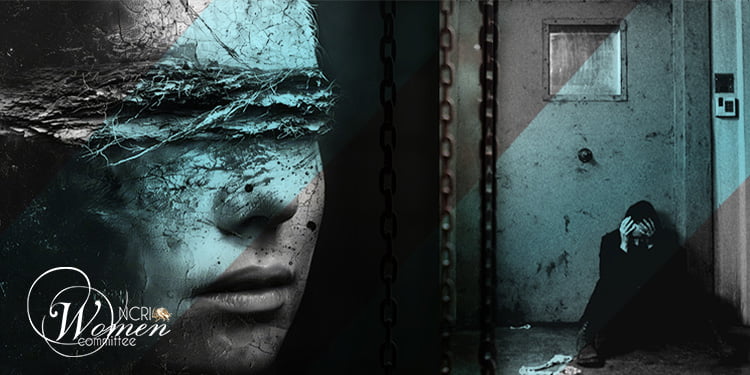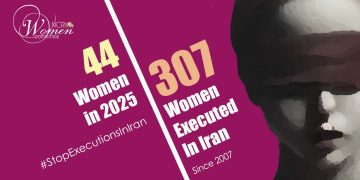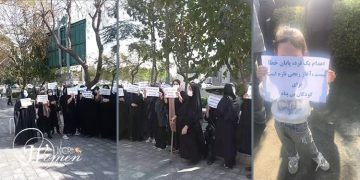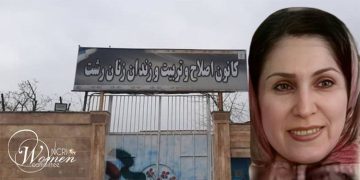From the memoir “The Last Laughter of Leila” by Mehri Hajinejad– Part Two
In the first installment of Mehri Hajinejad’s prison memoir, she described her arrest and transfer to Evin Prison. In this part, we read about her interrogations, entry into Evin, and the first torture she endured as a teenage student.
Moments of Interrogation
On the way to Evin, I decided I would tell them a new story: I am Mehraban Hajinejad, but since I was expelled from school in 1980, I went to a different city. My family didn’t let me continue my studies, and I had only recently returned to Tehran to retrieve my school records.
The reason I hadn’t agreed to cooperate the night before was that I feared they would harm me. My plan was to close my file as a supporter of the organization (PMOI) in 1980 and appear harmless.
As soon as we arrived at Evin, they took me to a building I later learned was the Prosecutor’s Office. I spent three days under interrogation. At first, they asked no questions at all—they immediately took my shoes, watch, bag, and everything I had. They put a new blindfold on me and, without a word, sent me to the torture room.
A harsh voice barked at me in a rough tone:
“This is Evin. First, you need to get used to it, understand? Last night you lied—you will be punished for your lie. Even if you hadn’t lied, it would be the same. First, when you come here, you figure out where you are. Then we’ll give you paper and pen so you can sit and write like a proper child. Now, don’t waste time!”
I tried to act innocent and confused. I said, “I haven’t done anything. Why are you punishing me? I didn’t lie last night. All I know is that illegal acts, theft, and insults are happening around us. I am just a girl—how could I know who arrested me or why?”
A few minutes later, just as the torturer had told me in the outset, I realized this place really was Evin.
I was barely regaining my composure when the screams of a young boy named Afshin drew my attention. The interrogator shouted at him to talk, and he pleaded, “I’m only fifteen—I don’t know anything, and I haven’t done anything!”
Hearing Afshin’s cries was more painful than the blows I had endured. Every strike he received, I felt on my own body. I was extremely thirsty, but I refused to ask the torturers for water—they would have found some way to punish me even for that. Perhaps they kept me there intentionally, as a witness to the scene. I kept asking myself: what is really happening here? Does anyone know?
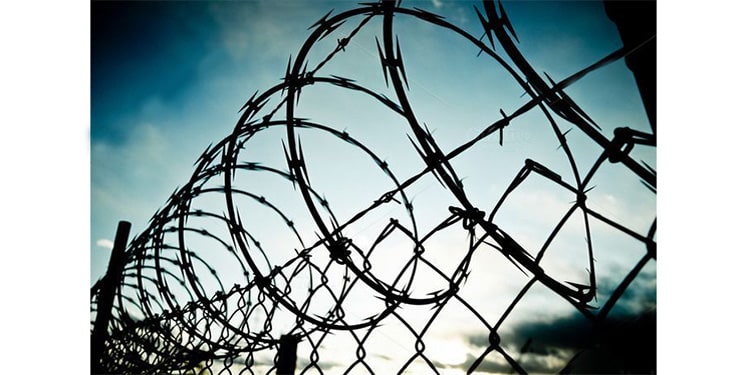
A female guard, whom I later learned was named Saadati, told me to pray before my next round of interrogations. As I stood, every step felt like a spear drove from my foot to my brain. I had no idea how to walk on legs that felt swollen and unmanageable. When I fell, my back and arm throbbed with pain. I couldn’t tell how many blows of the cable had hit my back, arms and head; the pain was unbearable.
Thoughts swirled in my head. I thought of Vajiheh, my supervisor, wondering if she had realized by now that I had been arrested because I hadn’t contacted her that morning. I remembered Farahnaz, who had been arrested on June 20 and whose photo, along with several other female supporters, was published the next day by the clerical regime’s prosecutor in Ettelaat newspaper. They shamelessly declared these people had been executed without identification and asked families to go to identify the bodies.
I wondered: had Farahnaz been tortured before her execution? Was she in these rooms?
I thought of Fereshteh, who went missing that same day—is she here? In this very corridor? My mind raced with questions, completely unaware that soon I would be returned to the interrogation and torture.
I don’t know exactly what time it was, but it must have been night. After prayer, they returned me to the interrogation room, sat me facing the wall, and placed a sheet of paper with the Prosecutor’s letterhead in front of me. I rewrote everything I had told them before. The interrogator—whose face I never saw—came over and struck my head and body repeatedly with punches and kicks while shouting insults I had never heard in my life and didn’t even understand. He constantly threatened me: if you lie, woe to you!
I knew they didn’t actually know anything about me besides my student ID, which reassured me. The same guard, Saadati, took me late at night to the first floor, to a room with only a piece of carpet on the floor, and said I would stay there overnight because the next morning I had another interrogation.
I woke up for dawn prayer. I think it was around 8 a.m. when they took me back to the interrogation room. Without speaking, the interrogator resumed hitting me, repeating, You lied. You’re a hypocrite.[1] From his words, I realized they knew nothing about me—they were trying to prove that I was a supporter of the organization, but I insisted I had done nothing since 1980 and had been arrested unfairly.
That day continued in this way until nightfall. Every passing guard or interrogator would strike me and hurl curses appropriate only to themselves.
On the third day, to be thorough, they took me to the torture room again. Afterward, the interrogator, seemingly convinced by my words, said: “For now, you will stay until we can confirm what you’ve said.”
At that time, they had no actual information about the organization. They arrested people based solely on appearance in the streets. I knew they had no case, so I stayed firm: I had neither been to Tehran nor engaged in any activities—they had arrested me for no reason.
Finally, at 10 p.m. on August 14, they said, “Get up, come with us.” Pretending to be naïve, I asked, “Could you take me to Enghelab Square? I don’t know Tehran, and it’s too late to get a taxi.”
The interrogator hit me on the head and said, “Where do you want to go? We’re not taking you anywhere else. Only two options: Mesgarabad or temporary detention.” I shouted in confusion, asking, “Where is Mesgarabad? Where is temporary detention? You didn’t show me any paper. You asked just a few questions, yet I’ve been here for days, beaten for no reason. What do you plan to do now?”
The more I shouted, the more punches I received. No one paid attention. Saadati grabbed my sleeve and said, “Come here,” placing me behind a line of detainees. She handed me a rope, held by the others in front, and said, “Follow behind them. Don’t talk too much.”
For about fifteen minutes, we shuffled, eyes blindfolded, step by step, through different corridors until we reached a staircase. There, the men were separated, and I and three other girls were taken up the stairs. We stood behind a door. The guard rang the bell—the ominous sound I will never forget. Once the door opened, a corpulent female guard, Ali-zadeh, who I later learned had been a prison guard since the Shah’s time, frisked us again and directed us to Room 4.
[1] “Hypocrite” is the term the clerical regime uses in place of Mojahedin/PMOI as a deliberate insult.



